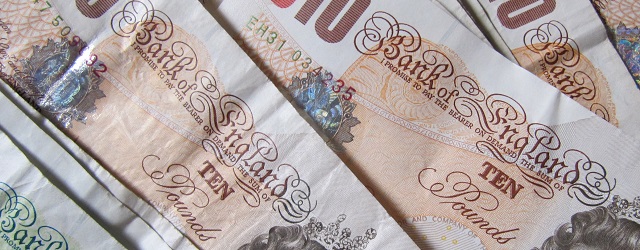Today, the route to getting the UK economy growing is to “get banks lending again”. Unfortunately bank lending was exactly the problem that “got us into this mess.” So how to reconcile these two issues? This post looks at the problem of free-market approach to credit allocation, and the UK Labour Party’s proposal to create a “British Investment Bank”.
The first question is, why didn’t the free-market approach to credit creation work? If we look at Hayek’s “The Road to Serfdom”, which many called Margaret Thatcher’s Bible, we’ll see that for the free-market to work, it depended on a certain amount of government organisation. Only governments could ensure the adequate “organization of certain institutions like money, markets, and channels of information”.
Amongst these institutions it is “money” that is the most problematic. It is often said that money doesn’t grow on trees, but if you’re a bank, that’s not technically true. There are in fact several types of money and most of it is created by banks when they extend credit. This ability comes with a power and responsibility, which was abused leading up to the financial crisis. Prior to the crisis, there was a boom in credit, in particular for mortgage loans. However even during this time, there was still relatively little credit available for businesses, as the productive areas of the economy. The economic side of the boom was fuelled by home-owners having more money to spend, through rising house prices.
Post-crisis, banks are no longer as keen to extend credit for mortgages. People no longer have money to spend and businesses are suffering from lack of demand. We can see here that money and credit are an important link to the economy, yet its creation is made entirely at the whim of the banks.
So how can government provide Hayek’s “adequate organization” of money and credit? One answer proposed by the Positive Money movement is to take away the banks’ ability to create credit altogether. One of their proposals is for credit and money creation to be placed in the hands of a Committee that would enjoy the same independence as the Bank of England. This Committee would be able to create credit-based money that is only to be used for certain purposes, such as lending to business.
Positive Money’s reforms would involve deeper changes in the way the financial system works. Until then, the idea that credit needs to be correctly allocated is a policy idea that has been taken up by the UK Labour Party, which aims to create a “British Investment Bank“. Indeed, such a policy is employed by all leading economies, and the UK “is currently unique among the members of the G8 in not having a dedicated institution dealing with Small and Medium Enterprise financing issues and initiatives”. Unlike Positive Money proposals, a British Investment Bank would not stop boom and bust, but would be able to ensure that productive businesses get credit in the most difficult of times.
Unfortunately the current coalition government is going in exactly the opposite direction to managed credit creation. Its current policy is the “Help to Buy” scheme, which once again wants to increase mortgage lending. Although the scheme is popular with voters, it serves more to prop up the housing bubble, than to invest in the real economy.
* Alex Biddle writes at Europe Endless.






Be the first to comment on "Time to end private credit creation?"